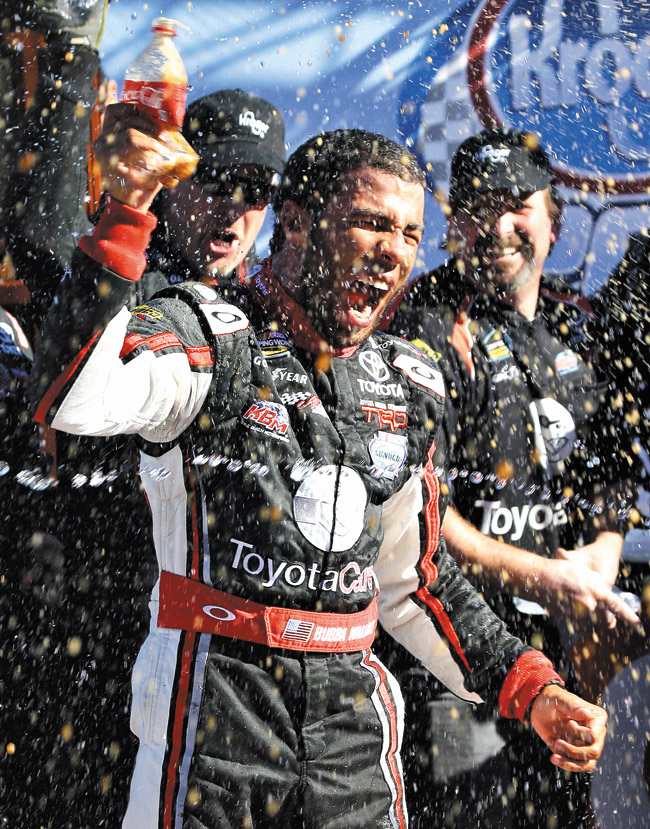Impact Of NASCAR Win Yet To Come
Darrell Wallace Jr.’s Truck Series win at Martinsville Speedway was like the week before Christmas – presents are piling up and the only thing NASCAR can do is wait out the temptation.
Wallace’s Oct. 26 victory was the first by an African-American driver on a top level NASCAR race since Wendell Scott’s victory in 1963. Normally, NASCAR would have been quick to take advantage of what the organization long has been seeking – a minority driver with the talent to win and the personality to entice fans.
But there is a problem. Wallace is young, talented, handsome and well-spoken. He also is too inexperienced to be given any serious push from the racing association or ride owner Kyle Busch Motorsports.
Wisely, they are taking it slow, even if it means losing sales.
NASCAR could rush him up through the ranks and give him his own reality show, but that would do little for his development or to further the sport’s entry into minority households. That’s the long-term goal.
What NASCAR can promote right away is its Drive for Diversity program, from which Wallace got his start. Wallace actually is the second driver to turn opportunity into victory. Kyle Larson, a Japanese-American driver from Sacramento, won a Truck Series race in April and has a full-time ride in the Nationwide Series (NASCAR’s second highest stock car category) and competes occasionally in the top tier.
The diversity program was created in 2004 to increase opportunities for women and minorities as drivers, crew members and owners. So far, it’s been a modest success. Take out the middle-aged white men, and NASCAR is just some guy’s garage in Atlanta.
John Dick, a Huffington Post blogger, likened NASCAR to the GOP. Both groups, he says, appeal to an ever-shrinking fan base composed of aging white males who are mostly Southern, rural and conservative.
I guess that makes Danica Patrick the Sarah Palin of the speedway.
Drivers like Wallace and Larson give NASCAR hope. So does the polarizing Patrick, who generates an enormous amount of attention, both good and bad.
NASCAR chairman and CEO Brian France would love to give Wallace a Patrick-style push, but to do so would put unnecessary pressure on Wallace and risk the ire of established fans, who haven’t exactly warmed to Patrick’s cash-before-victory career path.
Wallace’s success, or the lack thereof, means little to current NASCAR fans and will do little to draw new fans if he becomes just another historical footnote. The Truck Series is a great training ground for young drivers, but it is a long way from Sprint Cup racing, in terms of talent and attention.
To his benefit, Wallace has several veterans to learn from. He retains his link to Joe Gibbs Racing (which loaned him to Kyle Busch), and has driven for both Roush Fenway Racing and Hendrick Motorsports. Busch, the all-time leader with 124 wins in NASCAR’s top three circuits, says Wallace needs another year in trucks before trying to compete full time on the Nationwide series. That time frame could get sped up as Gibbs may tap Wallace to finish the final three Nationwide races as a replacement driver for Brian Vickers, who is suffering with a reoccurring blood-clotting problem.
And if that’s not enough support, Tyra Banks started following him on Twitter. That’s a major endorsement for anyone, especially one nicknamed Bubba.






